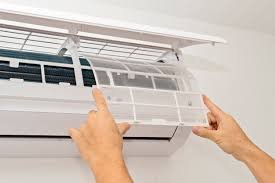When it comes to materials handling and warehousing, safety is of paramount importance. But when it comes to forklift use, it can be hard to know the risk factors associated with different types of machines. In this blog, we’ll be exploring the safety of piggyback forklifts and whether they are more prone to accidents than other types of forklifts. We’ll look at common risks and tips for keeping operators safe. So, keep reading to learn more about used piggyback forklifts and their safety.
Are Piggyback Forklifts Prone to Accidents?
Piggyback forklifts have become increasingly popular due to their versatility and efficiency. They are used in many industrial and commercial settings and are a valuable asset to any warehouse or manufacturing facility. But like any other type of machinery, there is always the risk of accidents. So, are piggyback forklifts prone to accidents?
The short answer is yes, piggyback forklifts are prone to accidents. If a forklift is not operated properly, or if it is not maintained properly, it can cause serious injury to the operator or those around it. Additionally, the nature of the job that a piggyback forklift performs exposes it to various hazards.
Operator Error
The main cause of accidents involving piggyback forklifts is operator error. Negligence or inexperience can lead to a catastrophic accident. To minimize the risk of an accident, operators should be properly trained in using the machine and be aware of the potential hazards. Employees should be instructed to only work with a piggyback forklift with proper supervision, and one should inspect the device for any issues before operating.
Defective Machines or Parts
In addition to operator error, forklift accidents can also be caused by defective machines or parts. This can include faulty brakes, steering, or other malfunctioning components. It is important to regularly inspect and maintain your forklift to ensure it is in good working order. This includes checking the tires, brakes, and other parts for wear and tear.
Balanced Load
It is also important to ensure that the load is balanced and properly secured before operating the machine. Improperly loaded or secured loads can cause the forklift to tip or overturn, leading to serious accidents. Additionally, it is important to remember never to overload the truck or drive the forklift on uneven terrain or in hazardous conditions.
Surroundings
In addition, the operator should be aware of their surroundings and follow all safety protocols. This means avoiding obstacles, traffic, and other hazards while operating the machine. The operator should also be aware of potential blind spots and take extra precautions when crossing corners.
Speed of the Machine
Furthermore, the operator should be aware of the power and speed of the machine. If the machine runs too fast or carries too much weight, it can become unstable and cause an accident. The operator should also be aware of the terrain and take extra care when navigating over slippery, wet, or uneven surfaces.
Poor Maintenance
Other potential causes of accidents involving piggyback forklifts include poor maintenance, defective parts, and improper loading. If the forklift is not regularly serviced, it could become worn over time, leading to a potentially dangerous malfunction. If defective parts are used, it could also lead to an accident. Finally, improper loading can lead to an accident, as the forklift may be overloaded or the load not properly secured.
Overall, while piggyback forklifts are valuable equipment and can help businesses move materials efficiently and safely, they can be prone to accidents if not used and maintained properly. Truck forklifts are a good place to look for used piggybacks. One can greatly reduce the risk of an accident by ensuring the operators are properly trained, following safety protocols, and addressing potential hazards.
FAQ’s
What Are the Most Common Causes of Accidents with Piggyback Forklifts?
The most common causes of accidents with piggyback forklifts include operator error, inadequate training, and improper maintenance. Operator error could involve not paying attention to the surroundings or not checking for obstacles before turning. Inadequate training can include not understanding the proper use of the machine or not knowing how to lift and lower loads safely. Improper maintenance can consist of not inspecting the machine regularly or not replacing parts that have worn out.
What Are the Most Common Types of Accidents with Piggyback Forklifts?
The most common types of accidents with piggyback forklifts include collisions, tipping, and rollovers. Collisions occur when the machine runs into an object or another person. Tipping can occur if the operator takes a turn too quickly or carries an uneven or unbalanced load. Rollovers can happen if the operator tries to climb a steep incline with the machine or if the weight of the load is too much for the machine to handle.
What Are the Risks Involved in Piggyback Forklifts?
The risks involved in piggyback forklifts include serious bodily injury and property damage. If the operator is not properly trained in the use of the machine, they may not be able to control it in an emergency, leading to an accident. In addition, those operating the machine may be exposed to hazardous materials, such as chemicals or dust, which could lead to health issues.
Read also : Are Piggyback Forklifts Prone to Accidents?




